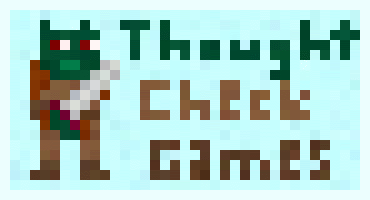… yeah, okay, I guess I can talk about how Fate is a a supremely hackable game, and that’s all well and good, but what does it prove, exactly? Not a whit.
So I’ll just go ahead and write that sidebar I was thinking would be nice to have.
—
1) Low Magic– think Conan, or Xanth, or any setting in which magic powers are best thought of as individual gifts. For instance, the Twilight universe. Ugh. Anyway. A wizard in this sort of low magic setting isn’t someone capable of a multitude of spells, so much as he is someone capable of one single act of magic, which is rare enough that it makes him notable.
We create a skill; call it “Magic” or “X-factor Mutation” or “Psionic gift” or what have you. Anyone who wishes to have access to magic MUST take this skill, but it does very little… depending on the setting, knowing Magic might be useful in a knowledge check, or having Psionics might be generally useful in creating advantages with a little mindreading, but those should be minimal functions, and there are absolutely no direct attack or defense applications.
The ability to actually DO something is a stunt, one which creates a rules exception (for instance: Power of the Blaze: You may make a command of a source of fire nearby, which will attempt to obey you. You may ask the fire to extinguish itself, grow hotter, or travel where you wish it to go). In order to activate this stunt, you must roll using your “Magic” skill against a target set by the GM (or, if your spell is usable as an attack, against someone’s defense).
Advantages: This makes it easy to make every magic-user quite unique, but doesn’t allow any one to be so powerful that they are overshadowed entirely. The spells attached are necessarily powerful, and might be easily made delightfully idiosyncratic. The GM can do a lot of fun things when the caster fails or ties as well; a psionic attack might have a minor cost expressed in mental stress and a major cost as a a Minor Consequence, for instance. A tie roll for the Power of Blaze spell might work, but force the caster to take the aspect “Now I’m on fire!”
2) High Magic– For worlds of arcane schools, where just about everyone knows a little magic; many D&D-style universes run like this, or the Elder Scrolls, for instance. This might also apply to worlds of high technology which allows for myriad powers.
Rather than one “magic” skill we create a dozen, a score, a ridiculous number of arcane schools: Evocation, Illusion, Charms, Transfiguration, Necromancy, so on and so forth. There’s a fair amount of work on the outset here, because we need to know how all of these work, and the players all have to be on the same page; is there any way Necromancy can be used as an attack? What is considered an Evocation? Where do fireballs come in? (In another setting, it might be “Just what can Power Armor do? Can a Cybernetic Enhancement Suite be a form of attack? Where do lasers come in?” or something of that nature). Lots of questions. But once we have these schools set up as skills, being able to cast is simply a matter of using the skill to do something appropriate to that school, provided the skill is at Average or above–no casting with a Mediocre skill!
Advantages: It’s very easy to take on a little extra magic, if that’s something that interests you. It’s very, very hard to excel at all forms of magic; players still start with ten skill slots, so a player who wishes to be master of all ten schools of magic is going to, by necessity, ignore all other possible skills. Great wizards are therefore terrible at being anything but wizards, and even folks who wish to be primarily casters are going to wind up with gaps in their skill set if they want to have any luck with basic athletics, rapport, or will.
3) Middling Magic– Great for a world of superheroes, or wizards who can’t rise to truly epic power levels but still have plenty of options within their sphere of influence.
Rather than defining a number of magic schools at once, every player is allowed to create a single skill which reflects her High Concept; if she is a “Downtrodden Illusionist” then she can create the skill Illusions. Optionally, the skill might come from another aspect… if my Trouble is “Fighting the curse of Lycanthropy at every step” then I might be able to create the school Lycanthropy. Like in high magic, take some time to discuss how all of these skills can be used… when can Lycanthropy create an advantage, and can Illusions ever be used to attack, things of that nature. Every player then takes the skill they created, but no other “Magic”-type skills. They can take stunts off this skill as usual, but nobody else gets access to it (unless they also have an aspect that would confer this skill; some NPCs might, though the other PCs probably should not).
Advantages: This gives the players a broad set of wondrous abilities to work with, but doesn’t force magic to take over the setting; its great for superheroes who need to have flexible skillsets within their power and who don’t want to see someone who has the same exact power as them. It’s also easy to code in mundane folks (no special skill) or more powerful threats (two or more special, unique skills). Also, this makes the creation of magic/powers very much player-focused, which is always good.

